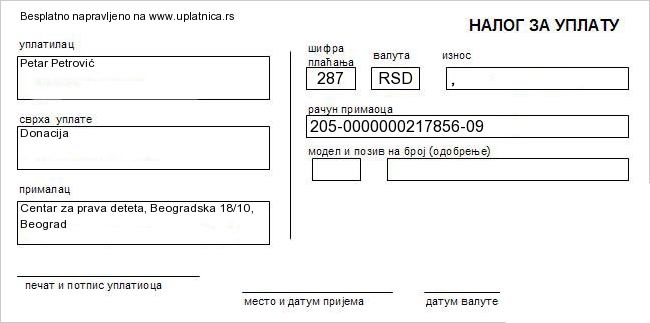
The Child Rights Centre held a two-day advanced training on the rights of children returnees to members of the Network of free legal aid providers in the field of child rights, refugee commissioners and Roma coordinators from Belgrade (Palilula, Cukarica), Zemun, Novi Pazar, Kursumlija, Niš, Kragujevac, Kikinda, Subotica, Vranje and Bujanovac.
The training was held within the project “Children Returnees in Focus”, which is being implemented in cooperation with the Deutsche Gesellschaft für Internationale Zusammenarbeit (GIZ) GmbH – Regional project “Social Rights for Sensitive Groups”, GIZ / CIM Program “Migration for Development”.
The training “Children Returnees in Focus” was held on 17 and 18 October, 2017 in Belgrade.
The focus of the training was to familiarise the participants with the position and rights of children returnees in the Republic of Serbia and the ways of their realisation. The participants had the opportunity to learn about the indirect and direct discrimination that these children and their families are most often exposed to. In addition, a special part of the training was dedicated to strengthening the capacity of the participants in raising awareness and overcoming their own prejudices and stereotypes.
On the first day of the training, Prof. Dr. Nevena Petrusic and Kosana Beker introduced participants with guaranteed child rights in the readmission process, with special emphasis on regulating the legal status of these children, as well as with the ways of exercising the right to social and health care for these children in Serbia.
The second day of the training was dedicated to recognising the direct and indirect discrimination that the children returnees and their families are most often exposed to. These themes were discussed with prof. Dr. Jelena Vranješević and Tamara Tomašević.
During the training, participants also discussed with the lecturers about the challenges they face in their everyday work and the ways in which they can be overcome, such as: The necessity of strengthening the capacities and knowledge of the employees in the centers for social work on the children returnees as a particularly vulnerable social group; More intensive networking of actors in charge of implementation of support measures; Providing psychological support to free legal aid providers and other service providers at the local level in order to provide end-users with as much assistance and support as possible.
